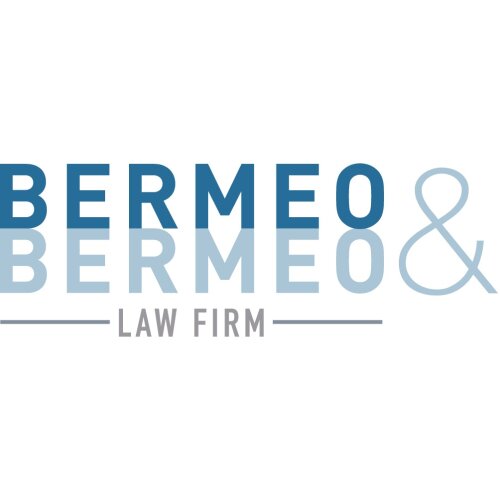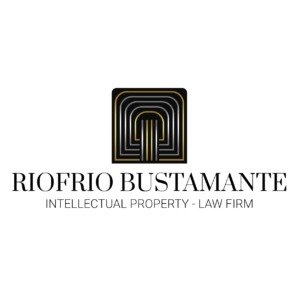Best Art & Cultural Property Law Lawyers in Quito
Share your needs with us, get contacted by law firms.
Free. Takes 2 min.
List of the best lawyers in Quito, Ecuador
About Art & Cultural Property Law in Quito, Ecuador
Art & Cultural Property Law in Quito, Ecuador, is a specialized area of law that focuses on the protection, preservation, and regulation of items of cultural significance and artwork. Ecuador, being rich in cultural heritage and history, has a robust legal framework designed to protect its valuable cultural properties. This includes legislation on heritage conservation, export restrictions, and ownership rights related to art and cultural artifacts. Legal practitioners in this field often work with museums, galleries, private collectors, and governmental agencies to ensure compliance with relevant laws and treaties.
Why You May Need a Lawyer
Individuals or organizations might need legal advice in Art & Cultural Property Law in various scenarios. Common situations include:
- Negotiating the acquisition or sale of artworks or cultural artifacts.
- Seeking to ensure compliance with the laws governing the export or import of cultural properties.
- Needing assistance with provenance research or ownership disputes.
- Navigating the complexities of restitution and repatriation claims.
- Understanding and implementing intellectual property rights related to artworks.
- Assisting cultural institutions with legal compliance related to exhibitions or donations.
Local Laws Overview
Several key legal elements are particularly relevant to Art & Cultural Property Law in Quito, Ecuador. These include:
- The Constitution of Ecuador, which includes provisions for the protection of cultural heritage.
- The National Heritage Law, which governs the preservation, protection, and promotion of cultural property.
- Export restrictions that prevent unauthorized removal of culturally significant artifacts from the country.
- Regulations that govern the operation of museums, galleries, and cultural institutions.
- Laws that facilitate the repatriation of Ecuadorian cultural property that has been illicitly trafficked.
Frequently Asked Questions
What constitutes cultural property under Ecuadorian law?
Cultural property in Ecuador typically includes objects, sites, and practices that have historical, artistic, or cultural significance, such as archaeological artifacts, artwork, monuments, and traditional customs.
Can I export artwork from Ecuador?
Exporting artwork, especially those deemed culturally significant, is subject to strict regulations. It often requires permits and approval from the relevant authorities to ensure that they are not part of the national heritage.
What should I do if I inherit an art collection?
If you inherit an art collection, it is wise to consult a legal expert specializing in art law to understand your rights and obligations, especially regarding any items that might be of cultural significance.
How can I prove ownership of a cultural artifact?
Documentation such as purchase receipts, provenance records, photographs, and expert evaluations can help establish ownership. Legal assistance may be necessary if ownership is disputed.
What happens if I buy an artwork that is later discovered to be stolen?
You should report it to the authorities immediately. Legal counsel can help navigate the complex process of rectifying such a situation, which may involve restitution claims or negotiations.
Are there any tax incentives for donating art to museums in Ecuador?
Yes, Ecuadorian law sometimes provides tax benefits for those who donate artworks to public museums or cultural institutions. Consulting with a lawyer can provide clarity on the specific benefits applicable.
How is intellectual property related to the arts protected in Ecuador?
Intellectual property rights for artists are protected under Ecuadorian law, which covers authorship, reproduction, distribution, and the public display of artworks.
What steps should be taken to loan art to a museum?
Legal agreements detailing the terms of the loan, insurance, and conditions of display should be drafted. Coordination with museums and potential legal advice can help in this process.
What are the penalties for trafficking in cultural properties in Ecuador?
The penalties can be severe, including fines and imprisonment, given the importance of preserving the national heritage. Each case is examined individually based on factors like intent and the cultural significance of the items involved.
Can indigenous cultural expressions be protected under cultural property law?
Yes, Ecuadorian law seeks to protect indigenous cultural expressions and heritage, acknowledging their importance and working to prevent exploitation or unauthorized commercialization.
Additional Resources
For further assistance or information regarding Art & Cultural Property Law in Quito, Ecuador, consider reaching out to:
- The Ministry of Culture and Heritage of Ecuador, which oversees cultural regulation and protection.
- The National Institute of Cultural Heritage, which enforces laws related to heritage conservation.
- Legal specialists or law firms that focus on cultural property and art law.
- Universities offering courses or seminars on art law, which may also provide access to educational workshops and events.
Next Steps
If you require legal assistance in the field of Art & Cultural Property Law in Quito, Ecuador, consider the following steps:
- Identify your specific legal needs or challenges related to art or cultural property.
- Research and contact law firms or legal professionals with expertise in this niche area.
- Prepare any documents or evidence relevant to your case to facilitate initial consultations.
- Discuss potential legal strategies and solutions with your chosen legal advisor.
- Ensure you fully understand the legal implications and processes involved in your situation before proceeding.
Lawzana helps you find the best lawyers and law firms in Quito through a curated and pre-screened list of qualified legal professionals. Our platform offers rankings and detailed profiles of attorneys and law firms, allowing you to compare based on practice areas, including Art & Cultural Property Law, experience, and client feedback.
Each profile includes a description of the firm's areas of practice, client reviews, team members and partners, year of establishment, spoken languages, office locations, contact information, social media presence, and any published articles or resources. Most firms on our platform speak English and are experienced in both local and international legal matters.
Get a quote from top-rated law firms in Quito, Ecuador — quickly, securely, and without unnecessary hassle.
Disclaimer:
The information provided on this page is for general informational purposes only and does not constitute legal advice. While we strive to ensure the accuracy and relevance of the content, legal information may change over time, and interpretations of the law can vary. You should always consult with a qualified legal professional for advice specific to your situation.
We disclaim all liability for actions taken or not taken based on the content of this page. If you believe any information is incorrect or outdated, please contact us, and we will review and update it where appropriate.














